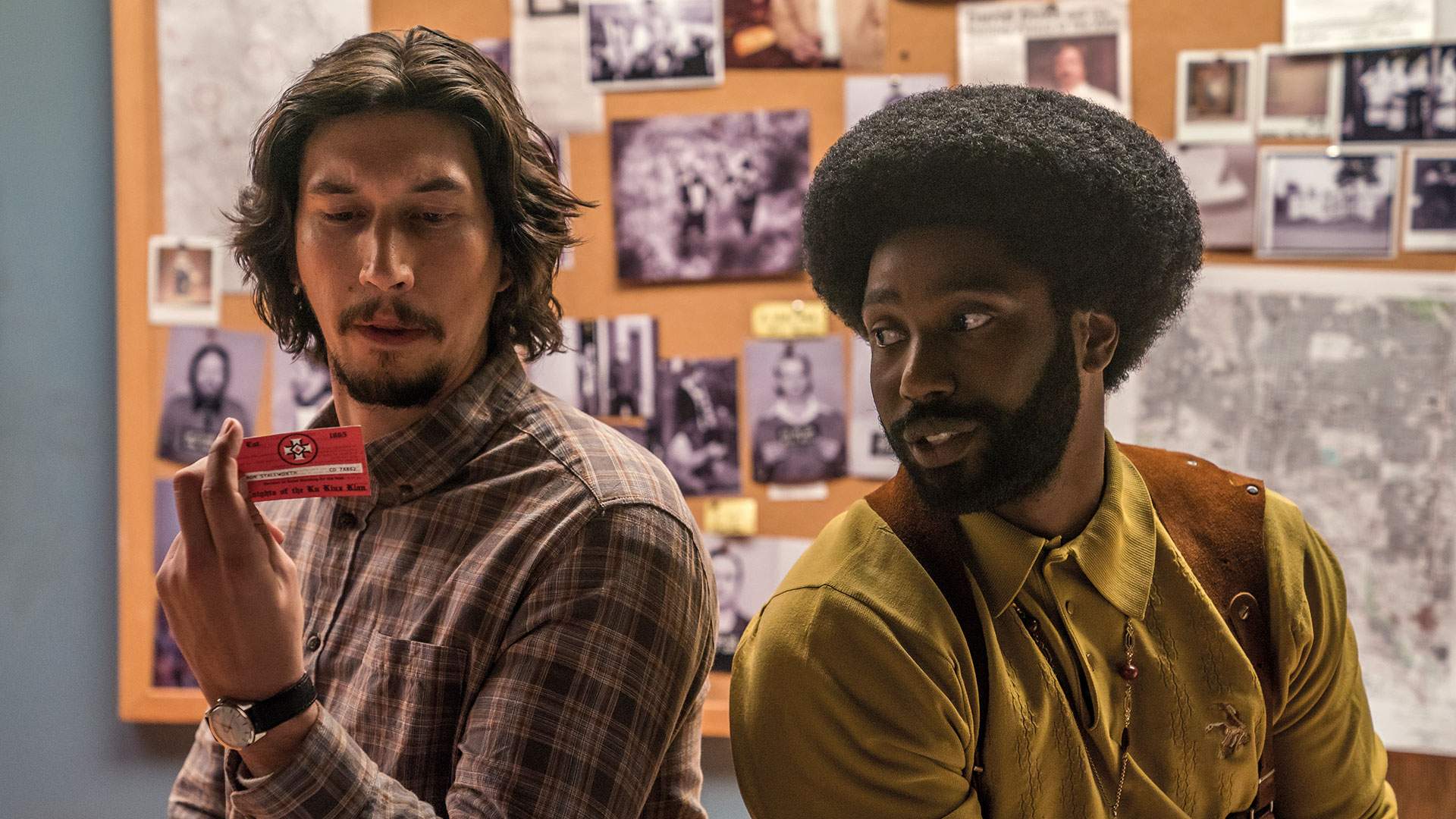BlacKkKlansman
Spike Lee returns a wild, infuriating, eye-opening true story it feels like he was born to tell.
Overview
Apologies, scorned women — when it comes to cinema, hell hath no fury like an impassioned filmmaker angry about race relations in his beloved country. Or, to put it another way, no one makes a seething big-screen statement about bigotry in the US like Do the Right Thing, Malcolm X and Chi-Raq director Spike Lee. You could call his latest joint many things, and they all fit: a crusading comedy laced with searing commentary, a tale so enraging and ridiculous that it can only be true, and a savage political polemic, for starters. Still, what echoes loudest in BlacKkKlansman isn't the megaphone that the film gives to its specific, valid and vital perspective. Rather, it's the shocked silence that emanates as the 70s-set picture holds a much-needed mirror up to America today.
In the type of true story that'd be accused of being too far-fetched if it was fiction, BlacKkKlansman chronicles that one time an African–American police officer went undercover in the Ku Klux Klan. All his infiltration mission took was three things, each as crucial as the last. Firstly, Ron Stallworth (John David Washington) had to get a job as a Colorado Springs detective, then convince his superiors that his talents exceeded the records room. Next, he had to spot a newspaper ad, put on a white-sounding voice and call the Ku Klux Klan's local chapter. Finally, he had to enlist his Jewish colleague Flip Zimmerman (Adam Driver) to be the face of his fake persona. That Stallworth also managed to strike up a phone-based friendship with Ku Klux Klan grand wizard David Duke (Topher Grace) didn't hurt, either.
With Lee adapting the real-life Stallworth's book with a trio of co-writers, BlacKkKlansman's narrative is filled with telling juxtapositions. The fact that everything on screen did happen, despite all logic seeming to dictate otherwise, is just the beginning. Furthermore, the contrast between the film's comic and horrific elements only scratches the surface. Also peppered throughout: the progressive posturing of the police force versus the bureaucratic reality, the discrimination faced along racial lines compared to gender and religion, and the smarts needed to bring down an organisation that operates on such sheer stupidity. Plus, as Stallworth strikes up a fledgling relationship with student activist Patrice Dumas (Laura Harrier) — who happens to be escorting a Black Panther leader (Corey Hawkins) into town — the movie explores clashing methods of fighting deep-seeded racism.
Helming the film it feels like he was born to make, Lee approaches his weighty material with the complexity that it deserves. Indeed, there's nothing simple about BlacKkKlansman, not only in its themes but in every element both in front of and behind the lens. Acting-wise, Washington puts in an intelligent, assured performance — sharing his dad Denzel's knack for commanding the screen with little more than a look and some silent swagger — while Driver's usual casual vibe serves his character well, and Grace gives prejudice a chillingly articulate face. Stylistically, the movie boasts the visual depth and texture that comes from shooting on 35mm, a suitably layered yet stirring soundtrack, and the energetic pace you'd expect from a filmmaker so committed to his cause.
And yet, there's one aspect that Lee and company perfect above all else. Tonally, BlacKkKlansman is a feat that might never be beaten. It's a procedural and a caper that combines a mix of history, humour, tragedy and a sense of injustice; a film that has no interest in subtlety, and yet sometimes feels like it's actually (and purposefully) holding back. That's not one of the movie's many juxtapositions, and nor is it a failing of nerve. Instead, it's a concerted and clever choice. Lee waves his ire around like a flag, while at the same time adopting the best approach to capture broader attention. His fury and ferocity never subsides, but rather shape-shifts through awkward laughs, surreal encounters, world-weary sorrow and raw terror alike. Whether kicking things off with a pointed overview of cinema's racist leanings since the advent of the medium, sticking to its period setting, or underscoring the narrative's parallels with the reality of today via heartbreaking news footage, BlacKkKlansman is all the more powerful, resonant and relevant as a result.





